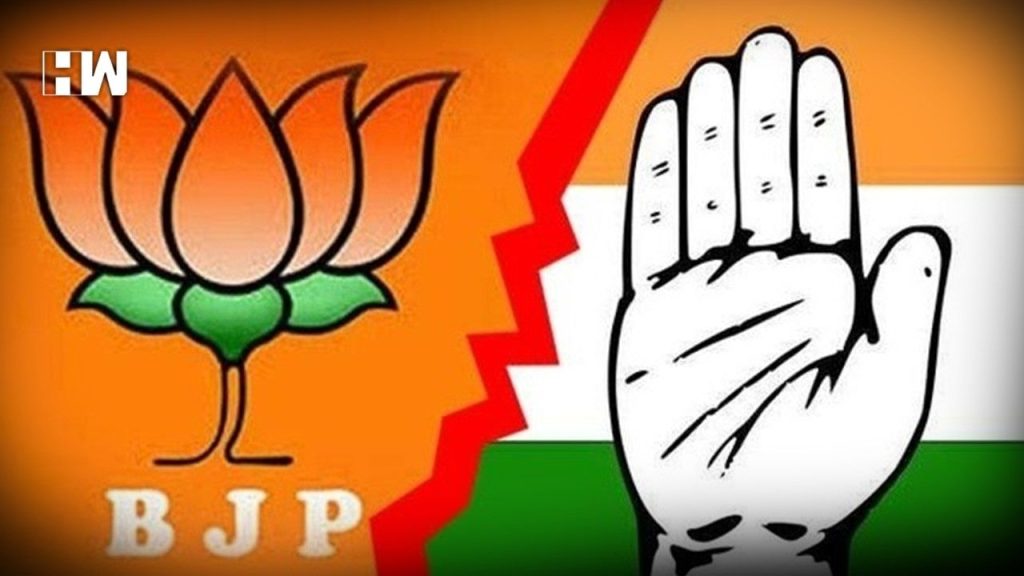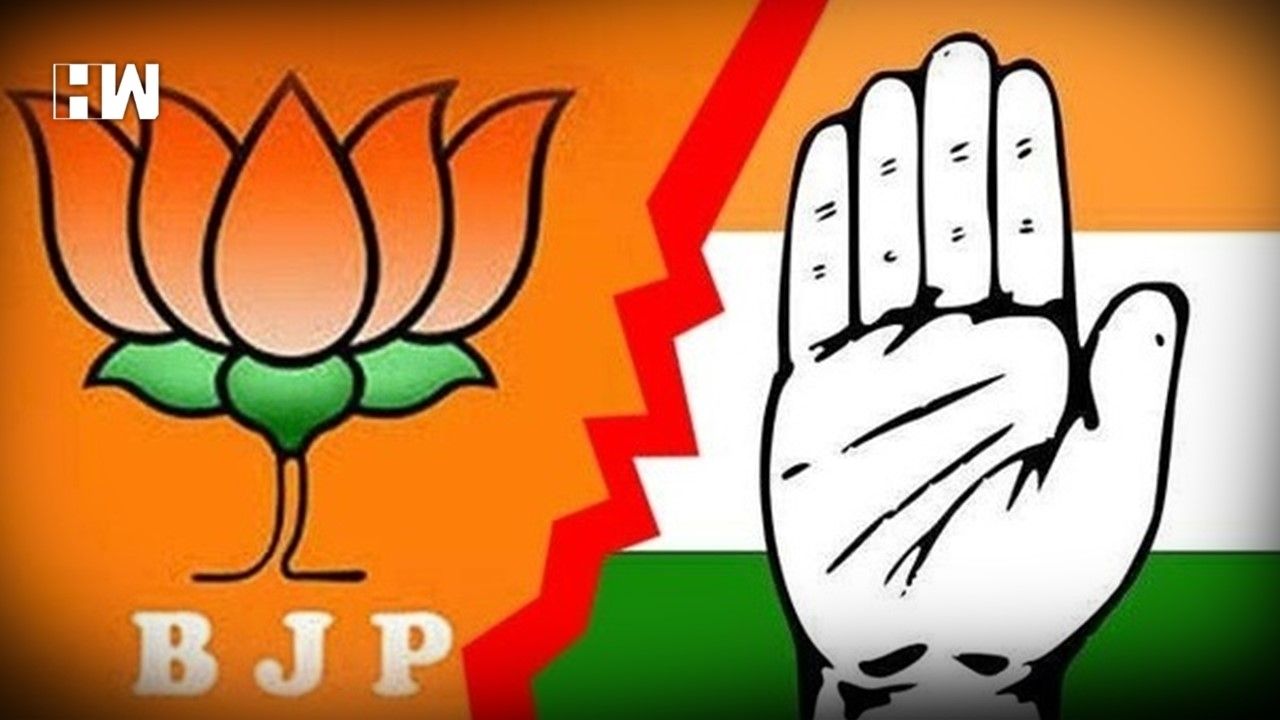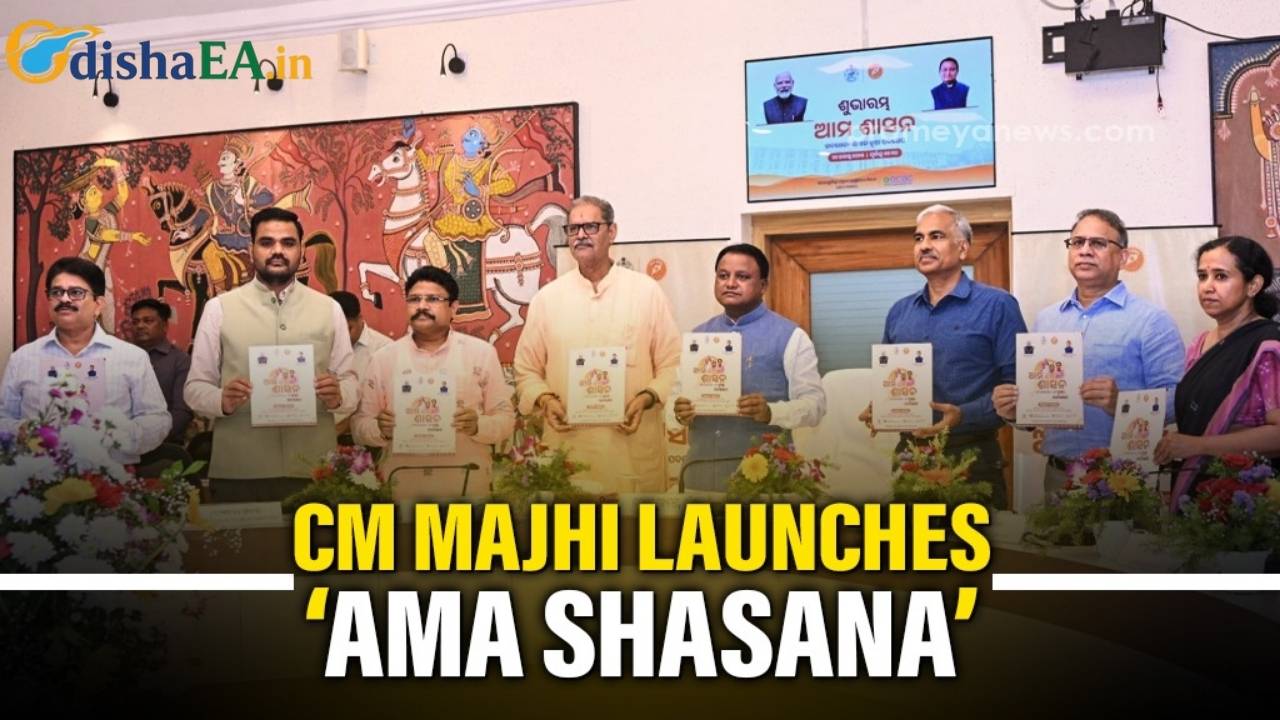The battle between India’s major political players, Congress and BJP, has recently escalated over the issue of the voter list in Odisha. With the Special Intensive Revision (SIR) of electoral rolls underway, both parties have raised concerns, accusing each other of manipulating the list for their own political gain. The real question now: Is the electoral roll being weaponized for political advantage? This article aims to break down the controversy, explain its implications, and provide insight into the political drama surrounding the electoral revision process.

Congress vs BJP Over Voter List in Odisha
| Topic | Details |
|---|---|
| Issue | Allegations of voter manipulation during the Special Intensive Revision (SIR) of the voter list in Odisha |
| Key Players | Congress, BJP, Election Commission (EC), Biju Janata Dal (BJD) |
| Congress’s View | Accuses EC of collusion with BJP, alleging removal of genuine voters |
| BJP’s Defense | Defends SIR as a necessary electoral reform to ensure accuracy in voter lists |
| BJD’s Position | Supports SIR but emphasizes the need for transparency and fair practices |
| Legal Involvement | Supreme Court intervention, directing EC to disclose the reasons for voter removals |
| Official Resources | Election Commission of India |
| Transparency in the Process | EC’s commitment to ensuring a transparent and accurate electoral roll revision process |
The debate over the voter list revision in Odisha highlights a critical issue: how to ensure that elections are fair, transparent, and accessible to everyone. With both Congress and BJP accusing each other of using the electoral roll revision for political advantage, the real challenge lies in ensuring that the process is carried out impartially and accurately.
As the controversy unfolds, it is essential for the Election Commission to act with full transparency and clarity, allowing voters to trust the process and feel confident that their vote counts.
Understanding the Special Intensive Revision (SIR)
In any democratic system, the integrity of the voter list is critical. It ensures that only eligible individuals are allowed to vote, preventing fraud and guaranteeing fair elections. The Special Intensive Revision (SIR) is a periodic exercise carried out by India’s Election Commission (EC) to update electoral rolls, ensure accuracy, and remove invalid or duplicate entries. It’s like cleaning out your contact list—making sure every number is accurate and no one’s left out.

For the State of Odisha, the latest revision has stirred up a political storm, as both the Congress and the BJP accuse each other of manipulating the process to favor their respective interests. Congress alleges that the EC is colluding with the BJP to eliminate eligible voters, while the BJP defends the revision as an essential step in eliminating fake or duplicate entries from the voter list.
Let’s take a closer look at both sides of this debate and what’s at stake for Odisha’s political future.
Congress’s Allegations: EC in Cahoots with BJP?
The Congress party has been vocal about its concerns, alleging that the Election Commission is playing favorites by removing genuine voters from the list, especially those from marginalized communities and migrant workers. Congress leader Rahul Gandhi recently accused the EC of collusion with the BJP, claiming that the BJP wants to disenfranchise voters who would likely oppose them.
In states like Karnataka, Congress has pointed to what they call “suspicious discrepancies” in the voter list, where names of legitimate voters were allegedly removed without valid reasons. Gandhi even suggested that the EC is acting as an agent of the BJP—a claim that certainly fuels the controversy.
However, the Election Commission has firmly rejected these accusations, calling them “baseless” and demanding that Gandhi provide formal evidence, such as a sworn affidavit, to support his claims.
BJP’s Defense: Electoral Reforms or Political Trickery?
On the other side, the BJP has strongly defended the Special Intensive Revision (SIR), arguing that the process is essential to ensure that the voter list is accurate and up-to-date. According to the BJP, fraudulent votes—from duplicate registrations or illegal voters—are a significant problem that needs addressing. They argue that removing these names from the voter list will lead to a fairer election.
The BJP further contends that Congress is simply upset because the SIR threatens their vote banks, particularly in rural areas, where some voters may be removed due to outdated registration details.
While these arguments hold some merit from an electoral reform perspective, Congress counters that the revised list should not exclude legitimate voters. Without transparency, the entire revision process could be used to undermine the integrity of the election.
BJD’s Neutral Stance: Support with Conditions
Meanwhile, the Biju Janata Dal (BJD), the ruling party in Odisha, has taken a more neutral position. BJD acknowledges the importance of ensuring that the voter list is accurate but has expressed concerns about potential mistakes in the process. They’ve pointed to instances in Bihar, where genuine voters were reportedly removed from the list in the past.
The BJD has been clear in stating that they support the SIR process, but only if it is carried out with full transparency. They’ve called for more scrutiny in the revision process to avoid disenfranchising eligible voters.
Supreme Court’s Intervention: What’s the Verdict?
The Supreme Court of India has weighed in on the matter, instructing the Election Commission to disclose the names of voters who were removed from the voter list during the revision process in states like Bihar. The Court is also requiring the EC to explain the reasons for removing these names.
In response to concerns about voter exclusions due to a lack of official documentation, the Court has allowed Aadhaar and Voter ID cards to be used as acceptable forms of verification. This is a significant step toward making the electoral roll revision process more inclusive.
The Importance of a Transparent Electoral Roll Process
In any election, trust is key. Voters need to feel confident that the electoral roll is accurate, transparent, and inclusive. Transparency in the revision process helps ensure that everyone eligible to vote can participate in the election without fear of unfair exclusions. Here are a few ways to make the process more transparent:
- Clear Communication: The EC must clearly communicate why voters are removed from the list, providing valid reasons for each change.
- Public Access to Data: Voters should have easy access to the revised voter list, so they can verify their inclusion.
- Use of Technology: The Aadhaar integration is a step in the right direction to make voter registration more accurate.
- Grievance Redressal: A proper mechanism must be in place to allow voters to file complaints and have them addressed quickly.
BJD’s NAC Uproar Turns Salepur Into Flashpoint—BJP Hits Back With Scathing Attack
BJP Government Replaces BJD’s Green with Saffron in Public Infrastructure
Violence Breaks Out at SVM College as Election Fate Hangs in Balance
FAQs: What You Need to Know
1. Why is the electoral roll revision necessary?
The electoral roll revision ensures that the voter list is up-to-date, with accurate details for all eligible voters. This helps prevent duplicate entries, fraudulent votes, and ensures fairness in elections.
2. What is the Congress’s main concern about the SIR process?
The Congress party’s main concern is that genuine voters, especially from marginalized and rural communities, might be unfairly removed from the voter list, giving the BJP an advantage.
3. How does the Election Commission respond to the accusations?
The Election Commission has denied any wrongdoing, stating that the SIR process is routine and designed to ensure accurate voter rolls. They have demanded that Congress provide evidence for their claims.
4. What has the Supreme Court said about the issue?
The Supreme Court has directed the Election Commission to disclose the names of voters removed from the list and provide reasons for their removal. The Court has also allowed Aadhaar and voter ID cards for verification.
5. What role does the BJD play in this issue?
The BJD has expressed conditional support for the SIR process, urging that it be carried out transparently to prevent genuine voters from being excluded.





